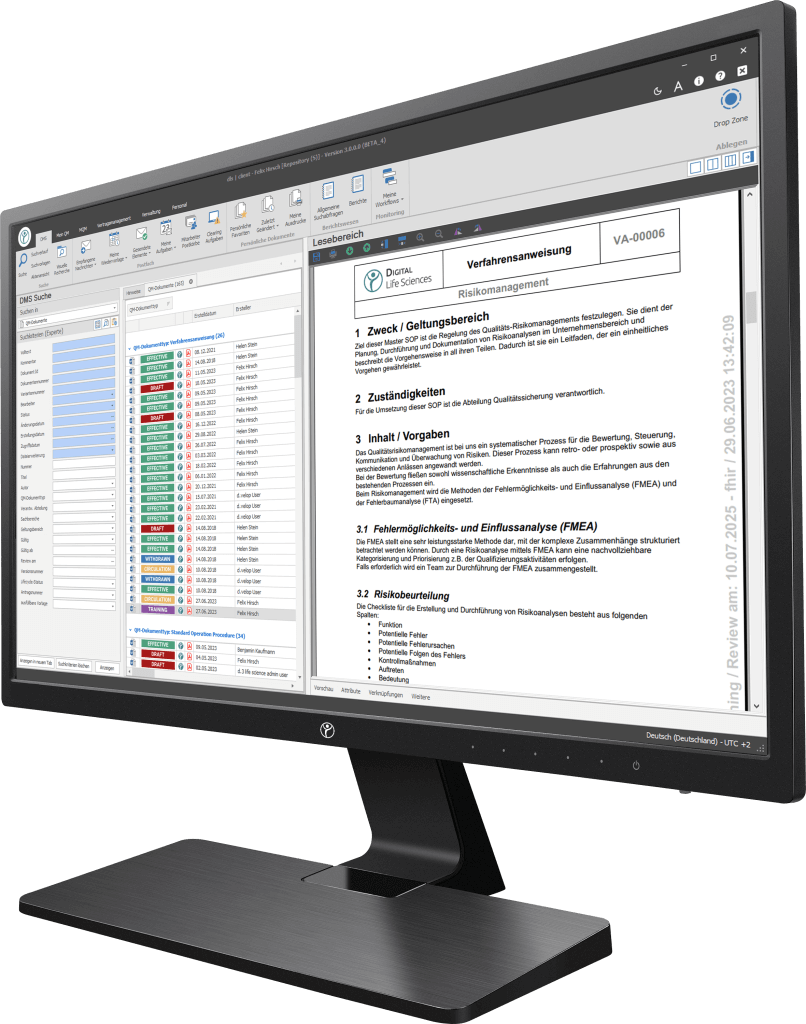Definition of the term ("What is ECM?")
Enterprise Content Management, often abbreviated as ECM, is a robust and integrated set of processes and technologies designed to capture, manage, store, preserve, and deploy content and documents related to organizational operations. ECM systems provide a central repository for digital content and enable organizations to optimize their document management and information governance. A ECM is used to bring together organised (e.g. invoices, contracts, personal files), less organised (e.g. e-mails, written correspondence) and unorganised (e.g. conversation notes) information.
What are the components of an ECM system?
- Document Capture and Imaging: ECM begins with the digitization of paper documents. Advanced scanning and imaging technologies convert physical documents into digital formats, enabling their easy accessibility and searchability.
- Document management: This component involves organizing and categorizing digital documents to ensure they are stored in a logical structure for quick user prompt.
- Workflow Automation: ECM systems often integrate workflow automation, which enables efficient forwarding of documents and tasks within an organization. This optimizes processes, reduces errors and increases productivity.
- Records Management: ECM systems enforce retention policies and compliance regulations to ensure that documents are stored and disposed of appropriately.
- Search and retrieval: The ability to quickly search and retrieve documents quickly is a fundamental feature of ECM. Advanced search algorithms make finding specific content effortless.
- Collaboration: An ECM promotes collaboration by providing a platform for teams to work on documents simultaneously, regardless of their physical locations.
Your path to digitization - Discover our software
Our digitization solutions primarily address document-based processes in manufacturing, production and quality management. The basis of the dls | eQMS is a holistic ECM/DMS system. The ECM/DMS system can be connected to your existing ERP system (e.g. SAP) and thus map almost all document-based processes in the company.

What are the advantages of using an ECM system?
Implementing an ECM system brings a variety of benefits to organizations of all sizes and industries. Here are some key benefits:
- Improved efficiency: ECM eliminates the need for manual document change and filing, reducing administrative overhead and allowing employees to focus on more important tasks.
- Improved Compliance: With ECM’s records management capabilities, organisations can ensure compliance with industry regulations and legal requirements
- Cost savings: Reducing paper consumption, storage costs, and the need for physical office space results in significant cost savings over time.
- Increased safety: ECM systems offer robust security features that protect sensitive information from unauthorized access and data breaches.
- Better customer service: Quick access to customer information and histories enables organizations to provide better and more responsive customer service.
- Scalability: ECM systems can scale as an organization grows, making them suitable for businesses of all sizes.
Future of ECM
As technology continues to advance, ECM systems are adapting as well. The future of ECM promises even more advanced capabilities such as artificial intelligence categorization of content, augmented reality interfaces for interacting with content, and seamless integration with emerging technologies.
Conclusion
Enterprise content management systems are changing the way organizations handle digital content. By streamlining document management, increasing efficiency, and ensuring compliance, ECM systems are becoming indispensable tools for businesses in the digital age. An ECM solution serves the purpose of defining how documents are handled during capture, processing, management, and storage. Ultimately, the ECM system maps the structures and processes as a company-wide solution . Use ECM to unleash the power of the digital organization and lead your company into the future.
Start your digital transformation with our powerful, modular software solutions
Frequently Asked Questions (FAQs)
Which industries benefit most from implementing ECM?
ECM is beneficial in a wide range of industries, including healthcare, finance, legal, and manufacturing, where document management and compliance are of great significance.
Are ECM systems suitable for small businesses?
Yes, ECM systems can be customized to meet the needs of small businesses and provide cost-effective solutions for efficient document management.
How can ECM improve data security?
ECM systems provide access controls and encryption to ensure that only authorized users can access sensitive information.
What is the difference between ECM and document management systems (DMS)?
An ECM system is often used as a synonym for DMS (document management system) and vice versa.
Can ECM systems be integrated with other software applications?
Yes, ECM systems can integrate with various software applications, including CRM, ERP, and email platforms to optimise business processes.
